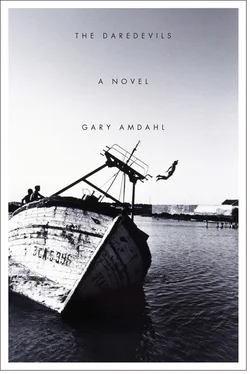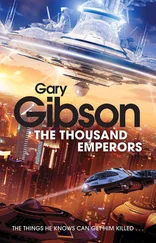He liked all three of the novelists named, and couldn’t begin to understand the speaker’s complaint. Neither could he begin to feel a duty to inquire and comprehend. He had no wish to be caught up in popular criticism, and looked away at a large poster just on the other side of the book-shelves. “The I. W. W. is COMING!” it proclaimed across the top, while at the bottom demanding or suggesting that the observer “Join the ONE BIG UNION!” A handsome, young Wobbly, bare-chested and muscular, appeared to be climbing right up out of the picture and the smoking mills in its background, over a barricade and preparing to hurl himself into the room.
“No, give me Henry James when I want a novel.” The tall, fair man who disliked Hardy and Dostoevsky and Dickens had shifted his stance and was now openly looking at him. He glanced at the poster and again at Charles. “Looks like you!” he shouted with theatrical bonhomie, then resumed his jolly and opinionated conversation with the hidden man, who peered around his friend and smiled at Charles. “We also spoke of the meanings of strange words: flic, gigolette, maquereau, tapette, and rigolo. I bought a naughty silk scarf and a pair of Louis XV candlesticks. I had an omelet at the Café de la Regence, where the actors from the Comedie Francaise have lunch in their makeup!” The hidden man shifted his position and both men now looked at Charles, as if, it seemed, he were an actress in her makeup. He had surely seen the hidden man in the shop that day as well. The tall, fair man then shook his head at the hidden man, who said, “I am preoccupied with thoughts and images of death, most certainly. Let us find actresses.”
Another man, much shorter and skinnier, with fierce, sharp, tiny features, including a moustache of very few but longish hairs, and a shock of blond hair angling off his small head, had drawn up in their lee. A kindly looking, older woman held his arm. Charles recognized him after a hazy swarming pause in which his knowledge overwhelmed his ability to know he knew: Warren Farnsworth.
“Does look like you,” said Farnsworth. “But you’re somebody else entirely, isn’t that so?”
“It’s true, yes, I’m afraid you’re right,” Charles confessed suavely. “I am someone else entirely.”
“Do you,” Farnsworth asked suddenly, without preamble, but slowly and quietly, “think they will bomb the parade?”
“Parade?” asked Charles. “Pardon?”
“The Preparedness Day Parade?” Farnsworth seemed incredulous now, instantly annoyed.
“Oh yes,” Charles said, quickly and reassuringly, “Durwood Keogh’s project.”
Farnsworth flared his nostrils at the mention of the playboy railroader, and breathed with difficulty for a moment. Then he worked out a way to smile at Charles again.
“Do you think they will?”
“Do I.?”
“Think they will bomb the fucking parade.” Farnsworth’s smile had become exaggerated, his eyebrows wagging as if to say, you’re very bright, but see if you can follow me now. He spoke in a quiet and friendly way. The woman, without weakening or exaggerating her features, shushed him.
“No, no, I—”
“You think they won’t, is that right? That they will not ?” Farnsworth probed with great care.
“No. I mean I don’t know,” Charles said. “I mean I sure hope not.”
Farnsworth sighed. “I’ve been taking bets all month.” Suddenly but tenderly he had Charles’s lapel between finger and thumb. “‘I hope not’ doesn’t qualify. Those days are gone. I was certainly a man who lived in hope! Do you read the papers? Because they’re making threats. ‘We will bomb you warmongering bloodsuckers back to the Stone Age.’ Is this the work of some inept or cowardly crackpot? Or one of us here tonight? Which is not to say there are no cowardly or inept crackpots here! But you see, you have all the elements in place now.”
Farnsworth waited for an answer.
“Yes,” Charles said. “I do?”
“Place your bet!”
“I’m sorry,” Charles pled. “Sounds like a great deal of fun but I’m afraid I can’t.”
“STOP LOOKING AT ME LIKE THAT!”
Startled, Charles nevertheless understood the command to be not directed at him, and he looked over his shoulder as — deciding at the last moment — a vaudevillian might.
“Come, come, Mr. Farnsworth, leave the gentleman alone now,” said the man, whom Charles recognized as “Owner.”
“If he’s everything they say he is,” said Farnsworth reasonably and calmly, “then the last thing I should do is leave him alone.” He refocused on Charles. “Are you everything they say you are?”
“I don’t know,” Charles said. “I’m afraid that’s just another question I can’t answer, much as I’d like to.” Succumbing to the guilty pleasure of sarcasm, he added that he’d thought it was understood that he was someone else entirely. Farnsworth ignored him — he was already too goddamned oblique — but the woman fixed him momentarily. Her gaze was like a vise.
She said, in a sweet and gentle voice: “If you are everything they say you are, if you’re William Minot’s son, if you’re ‘the American’ everybody’s talking about, then I think you would be concerned very deeply indeed with the Preparedness Day Parade and what may or may not happen on that day and to whom.”
“Well!” Charles exclaimed, “for starters, excuse me, ma’am, I guess I’ll have to say I’m not everything they say I am. It’s true I am William Minot’s son, but it’s also true that if he learned I was talking to a socialist he’d send me to my room without supper.”
Surprisingly, Farnsworth laughed heartily at the notion, as did Owner and the tall, fair man.
“And ‘the American’ is a role I play onstage. I don’t know what the hell it has to do with anything you’re talking about. Unless it’s money you want.”
“Fuck your money,” said Farnsworth with a frightening turn of humor.
“Look here, old man,” said Charles with an all-purpose British accent.
“No, you look, sonny boy.”
“I’m here to see my friends and you are not one of them and that’s it.”
Owner inserted himself between Charles and Farnsworth, actually put his arm around Charles’s shoulder, and steered him a step or two toward another room. “Vera is here,” he said. He was gesturing around like he was a pimp. In apology or at least recognition that his sudden, if masked, truculence might have been inappropriate, Charles nodded at the woman who still held Farnsworth’s arm. She begged his pardon and introduced herself as Minnie, Minnie Moody. She said she gave piano lessons, and that no working life ought to be without music. Surely as gifted a singer as Charles Minot would agree.
“Oh yes!” she cried, “I remember!”
Charles nodded respectfully at her and said he was pleased to meet her and that he couldn’t agree more with the idea that music should be a part of every person’s life. She said she had had a ticket to hear him and Mrs. Minot sing Pergolesi the night before the earthquake.
Charles stared at her, genuinely amazed.
Farnsworth looked like he might boil over again, and she moved him away. Charles eased his way through another thick crowd, making for the center of the room. A dozen chairs were arranged in a circle and he could see the faces of perhaps nine of the people sitting in those chairs, as well as the faces of the people standing behind the chairs, hanging over them like drooping flowers. The chair nearest had a very high back and concealed whoever was sitting in it completely.
The discussion was of the war and fears not just of the entry of the United States into it, which was assured now, but of conscription. Charles had a very simple belief about wars, about fighting: every culture he knew of venerated its warriors and applauded the skill and bravery of those warriors in battle. They accorded them great respect and furnished them with medals or other insignia to distinguish them from those who had not fought. He wanted to believe that he was intelligent and strong and brave, that he was, despite his metaphysics, the leader of men Father insisted he was or could be — or could have been — something along the lines of Prince Hal — that when the skies trembled and the caves were not safe and people could see and hear and feel unmediated the wrath of God, he would stand firm because the wrath of God was so amusing to him, and consequently was determined to go to war — he really couldn’t imagine the alternative (though one indeed had been bandied about to the point where it seemed a certainty, one that would keep him stateside) war was every bit the natural disaster that an earthquake was, the force of evil in human nature just another kind of trade wind or ocean current — so he listened to this discussion with something like aggrieved confusion. Because he had been taught to keep an open mind and nurture a reflexive sympathy for Christian Americans, he was able to listen through the murmur of his misunderstanding, and came to think toward the close of it that he could certainly forgive a poor man for not wanting to fight and likely die for the welfare of rich men, and could understand as well the general argument of the radicals — that the working people of the world had no quarrel with each other — but felt even more strongly that he himself was of a class, or a caste within a class, of honest, principled, capable men who were utterly depended upon by their fellow citizens to fight the dishonest and unprincipled tyrant when that tyrant moved to subjugate his neighbors. Stirred by the conversation with Warren Farnsworth and Minnie Moody, his blood not boiling but as nearly so as he ever allowed it, he would have spoken had not the woman sitting concealed in the chair stood and revealed herself.
Читать дальше












